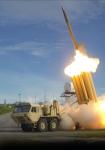"I take cognisance of the fact that the government is a continuing matter. Treaty (nuclear deal) signed by an earlier government cannot be easily disregarded. This fact will be borne in mind and the government will take a decision," BJP prime ministerial candidate L K Advani told media persons in Bangalore.
To a pointed question whether the deal was open for review, he, however, said, "I will not like to say anything at this point. I will leave it to the government to take a decision."
"How we deal with the Indo-US nuclear treaty is a matter which can be considered (when) in the government," he said, releasing the BJP's 'Vision Document on Infrastructure'.
NDA, he said, was committed to maintaining "warm and cordial" ties with US. "India will continue to have warm and cordial relations with the strongest democracy of the world."
The document stated that the "NDA will launch vigorous international initiatives that ensure India's long term energy security."
Opening another front of attack on Manmohan Singh after repeatedly taunting him as the weakest PM, Advani said it hurt when Singh as the then leader of opposition in Rajya Sabha "strongly criticised" the Pokhran test carried out by the Vajpayee government as an "unwise step."
"We cannot forget that when India had the Pokhran blast, Indians all over the world felt proud and happy," he said. "But the party faced criticism from home, including from the Left," Advani said.
"They (Left parties) did not have objections when China or Russia turned nuclear," Advani said.
"Those who criticised the test, harped on the point that "the economic sanctions would hurt India badly. When we decided to go for the test, we knew the US would not like it," Advani, who was then the deputy prime minister, said, adding that the NDA government had anticipated some imposition of sanctions for carrying out the explosions.
"We said we will overcome it and we overcame it... the sanctions hurt them (US) more than us," the BJP leader said.
Reaffirming the party's stand that the Indo-US relations should remain "warm and cordial," he said the party's policies will continue to ensure that "the two major democracies should have the best of relations."





